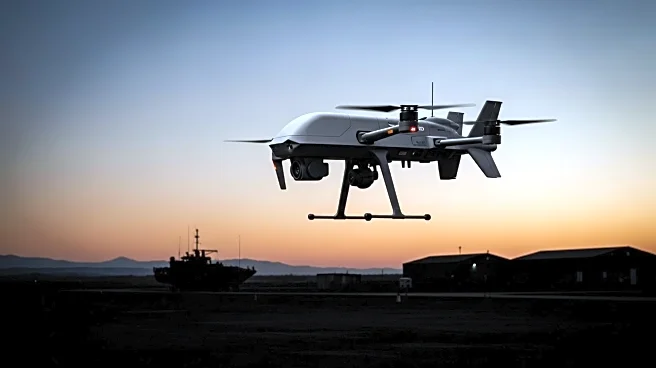What is the story about?
What's Happening?
The Danish defense ministry has reported renewed drone sightings at several military facilities overnight from Friday into Saturday. This follows earlier incidents in the week where drones were observed over Danish airports, temporarily shutting them down. The sightings have raised security concerns in northern Europe amid suspicions of growing Russian aggression. The Danish Minister of Justice, Peter Hummelgaard, stated that the drone flyovers aim to sow fear and division, and the country is considering legislation to allow infrastructure owners to neutralize drones. Additionally, Denmark has accepted Sweden's offer to lend military anti-drone capabilities for the upcoming European Union summit.
Why It's Important?
The drone sightings in Denmark highlight the increasing threat of hybrid attacks in Europe, particularly from Russia. These incidents underscore the vulnerability of critical infrastructure to drone incursions, prompting European countries to enhance their defense measures. The situation has led to heightened security protocols and international cooperation, as seen with Denmark's collaboration with Sweden. The broader implications include potential shifts in defense policies and increased investment in anti-drone technologies to safeguard airspace and critical facilities.
What's Next?
Denmark is expected to propose new legislation to address drone threats, potentially allowing infrastructure owners to shoot down drones. The European Union summit will likely discuss further measures to counteract drone incursions, including the deployment of anti-drone capabilities. The ongoing investigations in Germany and Denmark may lead to more coordinated efforts among European nations to strengthen airspace security.
Beyond the Headlines
The drone incidents in Denmark and neighboring countries reflect a growing trend of hybrid warfare tactics, where non-traditional methods are used to destabilize regions. This raises ethical and legal questions about the use of drones in civilian areas and the appropriate responses to such threats. The situation may lead to long-term changes in how countries approach national security and defense strategies.
















